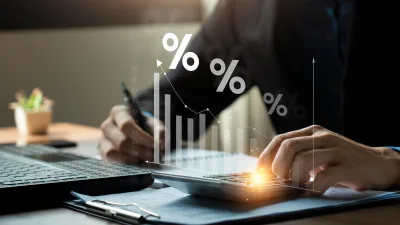Look to China during dips


Now is the time to invest in China and advisers should pick funds with stocks that have nothing to do with the trade war, Premium China Funds Management believes.
With every trade war update the market has dramatically reacted but advisers need to understand that this is a short-term issue, according to the fund manager.
The firm’s chief investment specialist, Jonathan Wu, said trade war issues conclude after next year’s presidential election in November, and when push came to shove President Donald Trump would be the one to back down from the trade war.
“We believe it is time to invest in China. While there is negative sentiment regarding the China/US trade war, there is a discount to Chinese equities but this is a beta situation,” Wu said.
According to Bank of America Merrill Lynch latest global fund manager survey, the biggest trail risk for managers was the trade war, and were now underweight emerging markets.
However, China equities were ranked 12 out of 23 in terms of ranked equities so far this year with a return of 8.4 per cent in USSD terms, the survey found.
Wu said a lot of his fund’s stocks were linked to consumer like Alibaba and Tencent because they were domestically driven. The fund had bought key holdings such as Wuliangye and Moutai which were white liquor companies undergoing a period of transformation to position themselves to the mass market and had nothing to do with the trade war.
Wu warned against advisers trade a China investment as he had “seen them do it and fail astronomically”.
With China funds swings were very obvious as there could be a 15% correction one year and the next year it could go up by 40%.
“Advisers would do well to buy in the dips. If you have the resolve to be invested in China for at least seven years, buy on a dip,” he said.
“There has never been a seven year period where people have invested coming off a low point and have said ‘that was a bad investment’ because they’ve ridden it out for more than one cycle, he said.
Wu noted that advisers concerned about the trade war needed to understand China’s strength was its ability to pivot.
“If the US does not want to import soy beans or whatever commodity, then China can easily sell to Europe. This pivot strength will be proven over time,” he said.
“You can put tariffs on and we’ve already seen the latest round that Trump has enforced. China has the resolve to just wait out whenever his advisers or he is finally pushed to the point of realisation that the tariffs are impacting the internal economy.”
Trump’s administration has most recently announced that it is set to impose another 5% tariff on a list of US$300 billion ($445.9 billion) Chinese imports starting on 1 September and 15 September.
Chinese equity markets are the world’s second largest and people are going to get used to investing in the market, Wu said. Volatility was the main barrier around investors looking to China but Wu noted that a lot of volatility was a result of retail trading.
Last year, the MSCI included the China A-shares into its emerging markets index and Wu said as more foreign institutions participated in the opening of the A-shares it would help reduce volatility and set long-term money in China.
Challenges
However, the biggest challenge Wu faces with his fund is advisers changing allocation without taking into account enough facts.
He said they would make macro calls because their dealer group wanted to without engaging with the fund first.
“The less institutional deal groups are engaging with fund managers the more they make less educated calls and that can lead to less than intended consequences down the track,” he said.
“They then have the tendency to making investments decisions at the wrong time.
“We’ve been working more and more with self-licenced practices as they understand the reality of facing the client more and they look at things from a far more practical standpoint and have a better grasp and approach to asset allocation.”
Performance
All the Chinese equity funds beat the emerging market sector at 37.8% over three years to 31 July 2019. However, the MSCI China index was the winner over the same time period at 59.2%.
The best performing fund over the three years to 31 July 2019 was Fidelity China fund at 54.8% and was also the only fund that made a return over the year to 31 July 2019 at 3.6%.
Fidelity was followed by Vasco ChinaAMC China Opportunities fund at 50.3% over the three years, and Premium China fund at 40.5%.
The Fidelity fund was also the top performer over the longer term at 101.9% and 130.2% over the five and 10 years to 31 July 2019, respectively.
China equity funds v. emerging market sector and index over three years to 31 July 2019
Source: FE Analytics
However, over the year to 31 July 2019 no fund beat the emerging market sector despite it only returning 7.1%, suggesting a longer time horizon needed for China equity funds.
Recommended for you
Outflows from an Australian private markets fund manager have caused FUM at Pacific Current to decline by $1 billion in the last quarter.
Former RIAA chief executive Simon O’Connor has joined the ethical advisory panel at U Ethical Investors.
Financial services leaders are “all cashed up with nowhere to grow” when it comes to M&A activity, according to Deloitte, with 90 per cent saying they have strong balance sheets ready for an acquisition.
As fund managers are urged to diversify their product ranges, they are finding a faster way to do this is via an acquisition of existing firms but experts say it is not without potential culture clashes.














